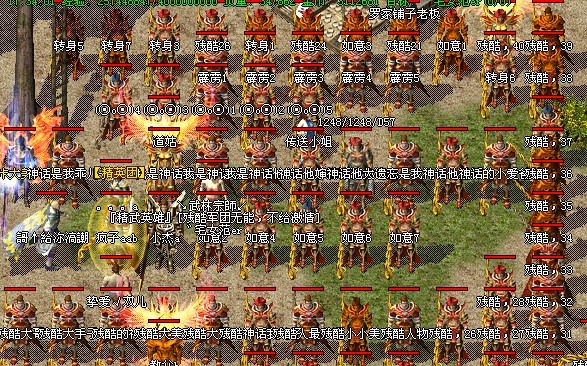今日新开传奇网站发布_3000ok传奇sf最新发布站
七八九开区网
- admin 2024年9月6日0
sifuchuanqi: Understanding the Concept and Its Importance in Traditional Chinese Medicine
In the vast realm of Traditional Chinese Medicine (TCM), the term "sifuchuanqi" resonates with immense significance. Translated, it refers to the “Four Vital Energies” that encompass a fundamental understanding of health and wellness in TCM practices. These energies—Qi (life force), Xue (blood), Jin (body fluids), and Ye (nutrients)—interact dynamically within the body and are essential in maintaining a harmonious balance. Understanding the role of each component in the "sifuchuanqi" framework is crucial for practitioners and patients alike, as it informs diagnosis and treatment methodologies. This article delves deeper into each of these vital energies and their interconnectedness, providing a comprehensive exploration of their importance in achieving optimal health.
Exploring the Four Vital Energies in Sifuchuanqi
Qi, often referred to as “life force,” is the most critical component of the "sifuchuanqi" framework. It flows through the body along pathways known as meridians. An adequate flow of Qi is fundamental to health; imbalances or stagnation can lead to various ailments. Practitioners of TCM utilize acupuncture, herbal medicine, and Qigong to enhance the flow of Qi, thereby restoring balance and health. Next, we dive into Xue or blood, which plays a crucial role in nourishing the organs and tissues. Healthy blood circulation ensures that Qi is efficiently distributed throughout the body. TCM views blood deficiency as a significant health concern, often leading to fatigue, paleness, and weak immunity. Hence, treatments often involve dietary recommendations and herbal supplements formulated to enrich blood quality and quantity.

Transitioning to Jin and Ye, these components signify body fluids and essential nutrients, respectively. Jin typically refers to clear fluids, while Ye encompasses more viscous substances, both of which are pivotal in ensuring hydration and nutrient absorption. An imbalance in these fluids can lead to health issues such as dryness or dampness in the body, influencing emotional and physical wellbeing. In TCM, practitioners emphasize maintaining a harmonious state of Jin and Ye through lifestyle adjustments, hydration strategies, and dietary considerations that align with individual needs. A thorough understanding of "sifuchuanqi" empowers patients to collaborate with practitioners in creating tailored wellness plans that address underlying imbalances of these vital energies.
The Interconnectedness of Sifuchuanqi and Holistic Health Practices
Understanding "sifuchuanqi" also fosters a greater appreciation for the holistic nature of TCM. The four vital energies do not work in isolation; rather, they significantly influence one another. For instance, if the flow of Qi is obstructed, this can lead to a decrease in blood production (Xue), which in turn can cause fluids (Jin and Ye) to become inadequate—resulting in a compounded health effect. This intricate interplay calls for a holistic approach in assessing health scenarios, bolstering the necessity for comprehensive evaluations and personalized treatment regimens by practitioners. Holistic practices such as Tai Chi and meditation are not only recommended to enhance Qi flow but also to cultivate emotional and mental resilience—providing approaches that support mental health, which is equally important in the TCM perspective.
As we observe the modern landscape of healthcare, the rising interest in TCM principles like "sifuchuanqi" signifies a shift toward integrative health solutions. By understanding and embracing these vital energies, individuals can actively participate in their wellness journeys. TCM practitioners utilize a combination of diagnostic techniques, including tongue and pulse examinations, to assess the state of "sifuchuanqi" in patients, offering tailored treatments that address unique health challenges. By recognizing the importance of the four vital energies, individuals can gain insights into their health dynamics and take proactive steps toward achieving holistic balance and wellness.
Q: What is "sifuchuanqi" in Traditional Chinese Medicine?
A: "Sifuchuanqi" encompasses the Four Vital Energies: Qi (life force), Xue (blood), Jin (body fluids), and Ye (nutrients). These energies are crucial for maintaining health and balance in the body.Q: How do the four vital energies interact with one another?
A: The four vital energies interact dynamically; for instance, an obstruction in Qi can lead to decreased blood (Xue) production, which might result in imbalances in body fluids (Jin and Ye). This interconnectedness highlights the importance of holistic approaches in TCM practices.
文章内容页下在线分享
sifuchuanqi: Understanding the Concept and Its Importance in Traditional Chinese Medicine
Powered By 2020-2025 Theme By 网站地图
评论列表: